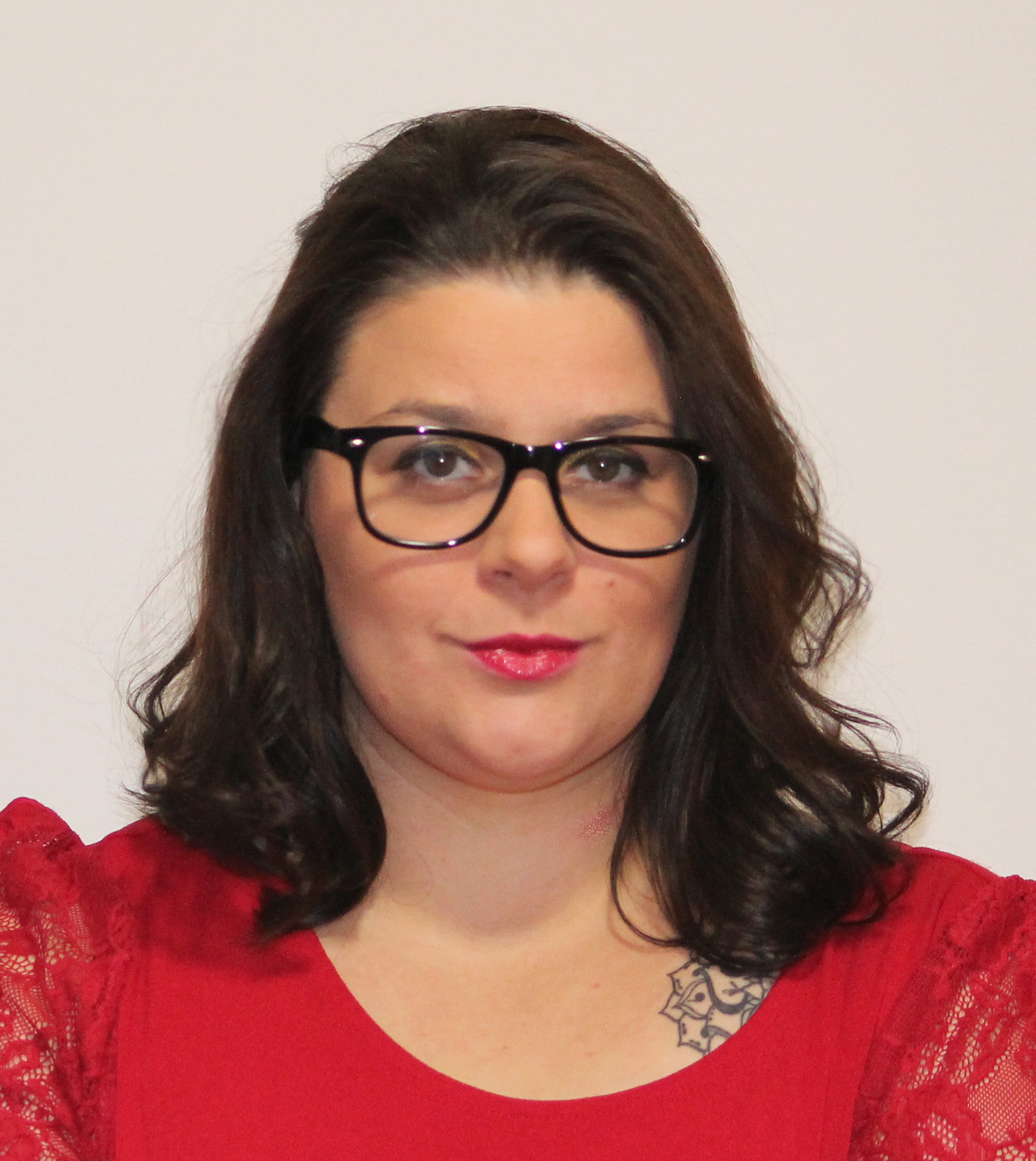New Faculty Member: Julie S. Di Martino, Ph.D.
GSBMS welcomes a new assistant professor in the Department of Cell Biology and Anatomy

Julie S. Di Martino, Ph.D., newly appointed assistant professor of cell biology and anatomy, originates from the southwest region of France from Villeneuve Sur Lot. Dr. Di Martino received her college education at the University of Bordeaux, where she earned a bachelor’s degree in cell biology, a Master of Science in Genetics, and a Ph.D. in cell biology and pathophysiology.
In 2009, Dr. Di Martino joined the laboratory of Christophe Cullin, Ph.D., Professor of Genetics, University of Bordeaux, France, as an undergraduate trainee. She discovered the fascinating world of working with Yeast. Dr. Cullin mentored her and facilitated the discovery of her passion for the unknown and gave her the strength to pursue an academic career
During her Ph.D., she studied subcellular actin-enriched structures formed in cancer cells upon contact with fibrillar type I collagen called linear invadosomes. These structures focalize the secretion of metalloproteases necessary for the cell to degrade its surrounding extracellular matrix and leave the primary tumor to form metastases. In 2014, under the supervision of Frederic Saltel, Ph.D., group leader and Director of the UMR 1312 Bordeaux Institute of Oncology INSERM, Bordeaux France, she published her main Ph.D. study, identifying the collagen receptor DDR1 as responsible for the formation of linear invadosomes. Her work was featured on the cover of the Journal of Cell Biology. She was the recipient of the French Society for Cell Biology 2014 award, allowing her to present her work at the American Society of Cell Biology meeting in Philadelphia, Pennsylvania.
Shortly after graduating, she joined the laboratory of Jose Javier Bravo-Cordero, Ph.D., Associate Professor at the Icahn School of Medicine, Mount Sinai Hospital, to complete her postdoctoral training. During her time as a postdoc, she focused on the role of the extracellular matrix in cancer dormancy.
Dormancy is the stage of the cancer disease happening between the treatment of the primary tumor and the appearance of the first metastases. It is also called minimal residual disease, as dormant cancer cells are disseminated in distant organs and remain quiescent for an extended period, which can range from months to decades, before getting reactivated to form metastases. She published her main work in 2021 in the prestigious journal Nature Cancer highlighting the role of type III collagen secreted by disseminated tumor cells themselves to sustain their dormant state.
In 2020, Dr. Di Martino was awarded an Early Career Investigator Award from the METAvivor foundation supporting breast cancer research to investigate the effect of ACE inhibitors on dormant cancer cells as an independent investigator. Most recently she was awarded the 2022 Rupert Timpl award from the International Society for Matrix Biology in recognition of her postdoctoral work recently published in Nature Cancer. Dr. Di Martino has published over 20 publications in respected peer-reviewed journals such as Journal of Cell Biology, Cancer Discovery, Nature, Nature Cancer, and Cell. Her work was cited over a thousand times by her peers. Dr. Di Martino has trained numerous students in the last decade providing strong support and mentoring and is committed to training and mentoring NYMC students from all levels. Joining NYMC in the Department of Cell Biology and Anatomy, her research will focus on Dormancy Escape and Cancer Metastasis using a combination of in vivo models and imaging technics.
“I will bring my expertise in 2-photon imaging to investigate the later stages of breast cancer, as nowadays the primary tumors are well treated but patients continue to die of breast cancer metastases at a steady rate.”
While setting up her laboratory, she wants to build her research team around three core values which are Honesty-Inclusion-Sustainability. She recently started a triannual newsletter where she shares tips to run a more sustainable laboratory with the international research community. Subscribe to the Honesty-Inclusion-Sustainability newsletter here.
Finally, Dr. Di Martino advocates for the work-life balance in academia and is committed to supporting every lab member joining her team. “In my lab, we cultivate people as if they were seeds and do not squeeze them as if they were lemons.”
